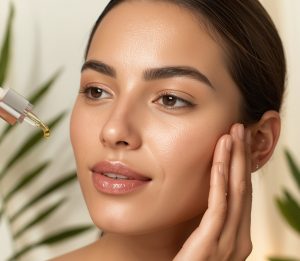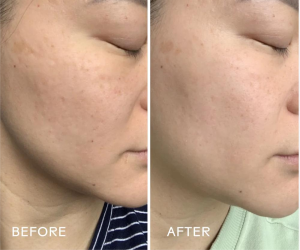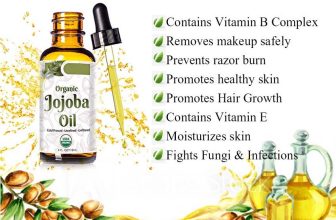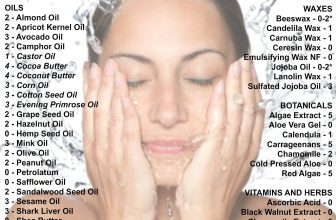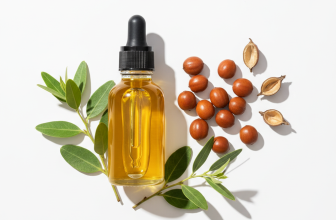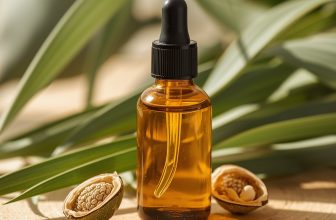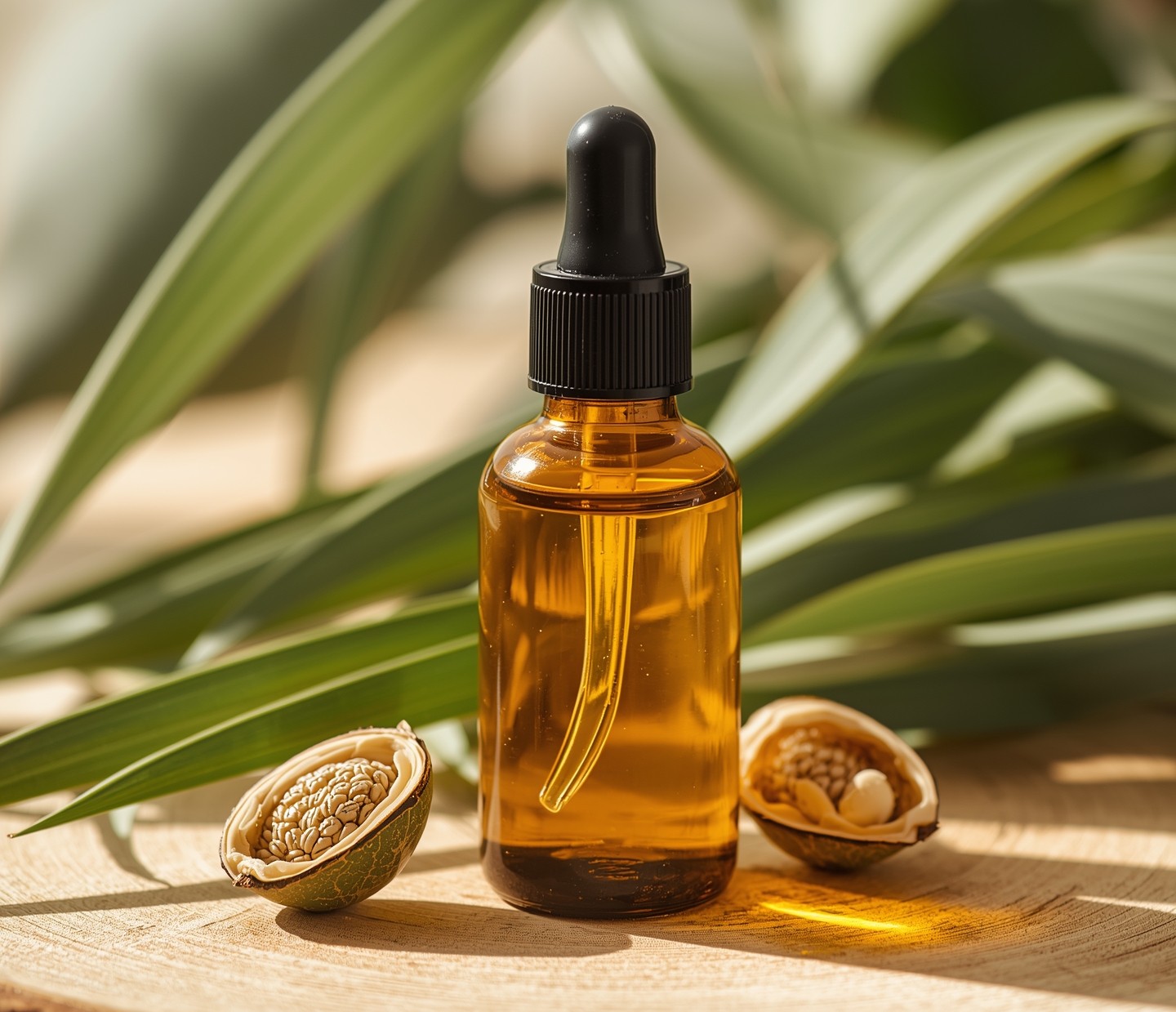
Does Jojoba Oil Clog Pores? Let’s know
Jojoba oil is often praised for its many skin benefits. Many people wonder if it clogs pores.
People often use jojoba oil in their beauty practices. It’s similar to the oils our skin naturally produces. This makes it an option for moisturizing without making the skin feel heavy. Still, some users are worried that it might clog their pores.
It is essential to know how jojoba oil affects your face. It can help you pick the right items for your skin type if you know if they clog pores. We will discuss how jojoba oil impacts the health of your pores. We will provide clarity to help you decide if it fits your skincare needs.
Skincare is popular
People who care about their skin love jojoba oil. It is often used in moisturizers and serums. Many love its lightweight texture. It hydrates the skin without feeling greasy. Users appreciate its ability to balance oil production.
It is also gentle and safe for sensitive skin. People with various skin types can use it. Its versatility adds to its appeal. This oil can help improve overall skin health.
Some false beliefs about jojoba oil
People often get jojoba oil wrong. Many people believe it blocks pores, but that’s not the case. This oil works like the skin’s natural oils to keep the moisture level stable without causing acne.
Some false beliefs about jojoba oil. People often say nice things about jojoba oil’s many benefits, but there are some myths about how to use it. The question “Does jojoba oil clog pores?” comes up a lot. It’s not as simple as you might think to find the answer. Let’s address some common questions people have about this well-known oil.
Reality vs. Myth
A common misunderstanding is that jojoba oil is heavy and may block your pores. The truth is very different. Jojoba oil is very similar to the natural oil that your skin makes.
Non-comedogenic: Research shows that jojoba oil doesn’t clog pores, which means it doesn’t cause acne.
Light texture: Because it is light, it can readily absorb, which makes it suitable for all skin types. If you’ve had breakouts after using jojoba oil, consider other factors that might have triggered them. It could be because your skin is sensitive, the products you’re using are interacting with one another, or you changed your skincare routine.
Sources Of Misinformation
Beauty blogs and social media are two places where false information regarding jojoba oil commonly circulates. Influencers might discuss experiences that don’t happen to everyone. – Anecdotal evidence: Just because one individual had a bad experience with a product doesn’t mean it doesn’t work for everyone.
Not knowing what the ingredients are: Some people could mix up jojoba oil with thicker oils that block pores, which can lead to misunderstandings. It’s essential to do your own research and talk to trusted sources. Instead of relying solely on anecdotal accounts, consider consulting studies or seeking advice from dermatologists. Have you ever believed a skincare myth? Knowing the facts about jojoba oil will help you make smart decisions.
Understanding Comedogenicity
The ability of a substance to clog pores is called its comedogenicity. Understanding this can help you choose the right products for your skin. Not all oils are the same. Some can cause breakouts, while others may not. Jojoba oil is often discussed in this context. Is it safe for all skin types? Let’s explore this topic further.
What do comedogenic ratings mean?
Comedogenic ratings help categorize products. Most of the time, these ratings are between 0 and 5. If a product gets a 0 rating, it suggests it won’t clog your pores. A score of 5 means that the product is very likely to block pores. Most of the time, jojoba oil gets a poor grade, usually around 2. This means that it is less likely to induce outbreaks. It’s essential to know how a product can affect your skin.
Explaining Comedogenic Ratings
Comedogenic ratings classify goods. Ratings typically range from 0 to 5. Non-comedogenic products get a 0 rating. A 5 implies high pore-clogging risk. Jojoba oil usually rates two or lower. It may produce fewer outbreaks. Individual skin types vary so that results may differ.
Jojoba Oil And Skin Compatibility
Jojoba oil is popular in skincare. It closely resembles our skin’s natural oils. This makes it suitable for many skin types. Understanding how it works helps in choosing the right products.
Skin Types And Jojoba Oil
Jojoba oil fits various skin types. It benefits dry, oily, and combination skin.
- For dry skin, it provides moisture. It helps to lock in hydration.
- For oily skin, jojoba oil balances oil production. It does not clog pores. This makes it an excellent choice for those prone to breakouts.
- Combination skin benefits too. Jojoba oil targets dry areas while soothing oily spots. It adapts well to different needs.
Adaptability To Skin’s Natural Oil
Jojoba oil mimics sebum, the skin’s natural oil. This helps the skin feel balanced. It signals the skin to produce less oil.
This adaptability reduces the risk of clogged pores. Jojoba oil maintains skin’s moisture without feeling heavy. It is light and absorbs quickly.
Using jojoba oil can enhance overall skin health. It promotes a smoother, healthier appearance. Many users report softer skin after regular use.
Scientific Evidence On Jojoba Oil
Jojoba oil is popular in skincare. Many wonder if it clogs pores. Scientific studies help answer this question. Researchers have found that jojoba oil does not cause acne. This means it doesn’t get in your skin. Users can feel more confident if they understand the science behind it.
Research On Pore Clogging
Several studies have explored the effects of jojoba oil on skin. One study found that jojoba oil mimics the skin’s natural sebum. This property helps balance oil production. It can soothe and hydrate without causing breakouts.
Another research focused on its composition. Jojoba oil contains fatty acids. These acids are similar to those in human skin. They do not clog pores. Instead, they help keep the skin healthy.
Comparative Studies
Comparative studies show how jojoba oil performs against other oils. For instance, coconut oil can clog pores for some people. In contrast, jojoba oil does not have this effect. Many participants in studies reported fewer breakouts.
In one study, jojoba oil was compared to mineral oil. Mineral oil often causes acne. Jojoba oil showed better results. Participants experienced less irritation and fewer clogged pores.
Personal accounts and reviews are often mixed. Some say it benefits their skin, while others worry about breakouts. Overall, opinions differ, so test jojoba oil on your skin first.
Reviews and testimonials might reveal whether jojoba oil clogs pores. Feedback from real users helps you understand its impact on different skin types. Check out what consumers and professionals think about this popular oil.
Experiences of Consumers
Many people who use jojoba oil have positive things to say about it. One person who used it for a while said that it made their skin feel more hydrated and less oily. They observed fewer breakouts, which they attributed to the oil not clogging pores. Someone else mentioned that jojoba oil greatly helped their sensitive skin. They used it every day without experiencing any discomfort or clogged pores.
The skin on their bodies got softer and smoother instead. But not every event is a good one. Many people said that jojoba oil made their acne worse. One person reported that they experienced more acne on their forehead after switching to jojoba oil. This highlights the importance of patch tests, especially for those with acne-prone skin.
Expert Opinions
Dermatologists extensively discuss jojoba oil benefits. Many say its structure resembles skin sebum. It absorbs without clogging pores because of this resemblance. Dermatologist Dr. Jane Smith says jojoba oil is safe for most skin types. She says it balances oil production and hydrates skin. Her acne-prone patients should check their reactions. Experts say jojoba oil is lightweight, and research supports this. It moisturises without accumulating dirt and bacteria. This makes it popular among skincare fans. Ever tried jojoba oil? Discuss your experience below!
How To Use Jojoba Oil Safely
Jojoba oil is known for its moisturizing properties. Many people wonder if it clogs pores. Because it resembles natural skin oils, it rarely causes outbreaks. Always patch-test before applying to your face to ensure skin compatibility.
To receive its advantages without congested pores, use jojoba oil safely. Known for its hydrating characteristics, this oil must be applied properly to avoid skin concerns. Let’s examine realistic jojoba oil use tips.
How to Apply
First, pick the best time to use jojoba oil. The best times are right after you wash your face or take a shower, when your skin is still a little wet. This helps keep moisture in. To avoid overpowering your skin, use only a small amount, like a dime-sized drop. Gently rub it into your face in circular motions, moving upward.
This method not only helps with absorption, but it also increases blood flow. If you’re using it on your hair, put a few drops in your hands, rub them together, and then smooth it over your hair, paying special attention to the ends. This keeps your hair from getting too dry without making it look greasy.
Patch Testing For Sensitivity
Before diving headfirst into a complete application, always perform a patch test. This simple step can save you from potential irritation. Apply a small amount of jojoba oil to a discreet area, like behind your ear or on your wrist. Wait for 24 hours to see if any redness or irritation occurs.
If your skin reacts negatively, it’s best to avoid using the oil on your face. Even if you have used jojoba oil before, your skin can change. Factors like weather, diet, or stress can affect how your skin reacts. Stay attentive to your skin’s responses. Using jojoba oil safely means paying attention to how your skin feels. What has your experience been with different oils? Are you ready to give jojoba a try?
Jojoba oil substitutes
Others are considering jojoba oil alternatives. For fear of clogged pores, many people are cautious about what they put on their skin. Fortunately, many oils and synthetics can keep your skin healthy without outbreaks.
Other Non-comedogenic Oils
Your skincare routine can benefit from non-comedogenic oils. They hydrate and nourish without blocking pores.
Argan oil is high in vitamin E and fatty acids. It penetrates fast and moisturizes without blocking pores.
Hemp Seed Oil: This oil helps regulate skin oil production, making it beneficial for skin prone to acne.
Sunflower oil is light and full of antioxidants, so it can help keep your skin’s barrier strong without creating outbreaks.
Have you used any of these oils? Many people notice a significant improvement in their skin’s clarity when they switch to non-comedogenic products.
Synthetic Choices
If you prefer synthetic options, several products are available that offer the same benefits as natural oils without clogging your pores.
Dimethicone is a silicone-based chemical that makes things smooth and keeps them hydrated without plugging pores.
Isododecane is a light and fast-drying substance that gives makeup and skin care products a smooth finish.
Polyethylene Glycol (PEG) is a valuable chemical that helps keep moisture in and doesn’t clog pores.
Are you willing to attempt synthetic options? Many people claim that these other options provide the hydration they need without causing breakouts.
Choosing the appropriate oil or synthetic alternative for your skin can make a big difference. You need to pay attention to your skin and try different things to see what works best for you.
Frequently Asked Questions
Will Jojoba Oil Cause You to Break Out?
Jojoba oil won’t clog pores because it is non-comedogenic. Many people claim it helps regulate their skin’s oil levels. But other people react in different ways. Always do a patch test before using it a lot, especially if you have acne-prone skin.
What Are The Negatives Of Jojoba Oil?
Jojoba oil may cause allergic reactions in some individuals. It can clog pores for those with oily skin. Overuse may lead to skin irritation. Always conduct a patch test before completing the application. Consider consulting a dermatologist if you have sensitive skin.
Will Jojoba Oil Make Your Pores?
Jojoba oil won’t clog pores because it is non-comedogenic. It is suitable for all skin types because it closely resembles the natural oil produced by your skin. Jojoba oil can help keep your skin nourished and manage oil production without triggering outbreaks. Don’t worry about the perks!
What Oil Is Best For Not Clogging Pores?
Jojoba oil is the best way to keep pores from getting clogged. Its makeup is very similar to natural skin oil, which makes it easy to absorb. Other great choices are grapeseed oil and hemp seed oil, which are both known for being light and not clogging pores. Choose these oils for clear, healthy skin.
Is Jojoba Oil Bad for Acne?
It does not clog pores because jojoba oil is non-comedogenic. It might help keep pimples away.
Conclusion
Jojoba oil does not clog pores. It mimics natural skin oils. This makes it suitable for many skin types. It hydrates without causing breakouts. Those with oily skin can benefit too. Always patch test before full use. Each person’s skin reacts differently.
Keep this in mind for the best results. Jojoba oil can be a helpful addition to your skincare routine. Enjoy healthy, nourished skin with the right products.

